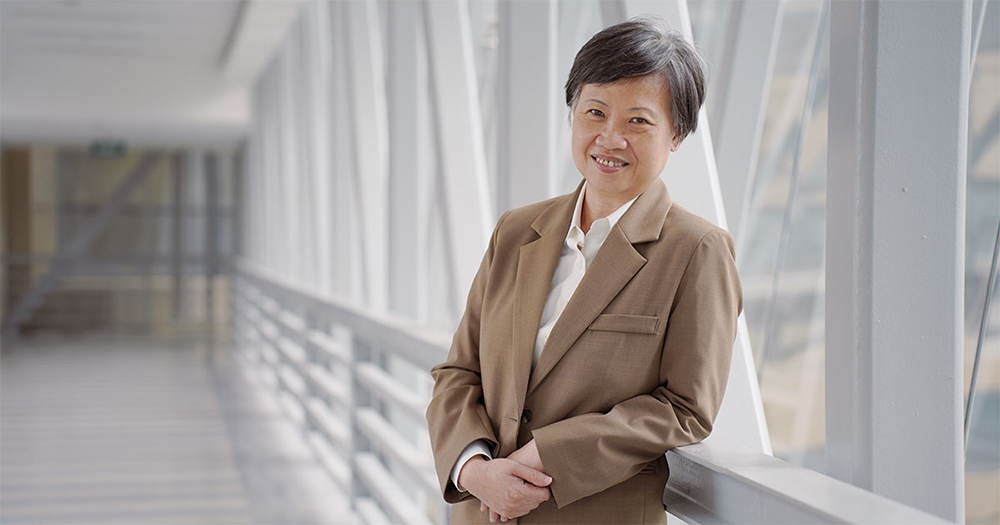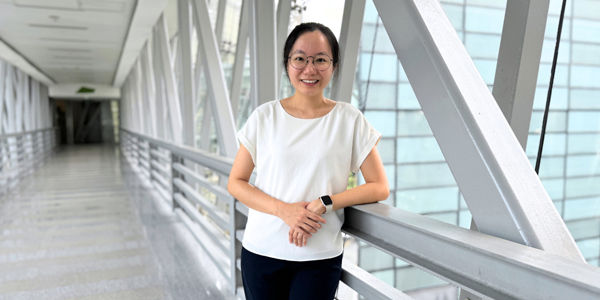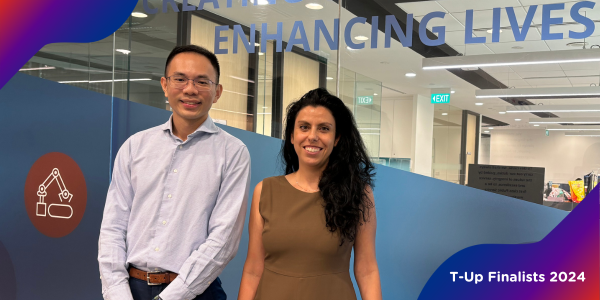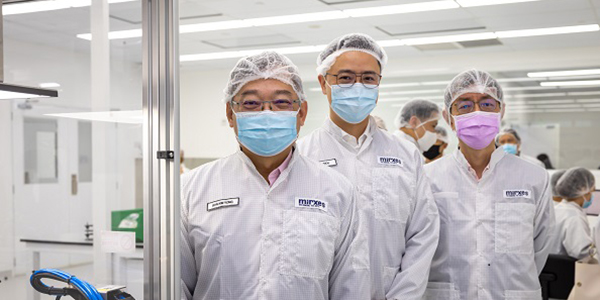FACES OF A*STAR
The Promise of Regenerative Medicine
While research in MSC exosomes has made stellar progress in the last ten years, much needs to be done to bring exosomes to market

Dr Lim Sai Kiang is a world-renowned scientist and entrepreneur, whose research on mesenchymal stem cell (MSC) exosomes has made significant contributions to the field of regenerative medicine. Founder of two biopharmaceutical A*STAR spin-offs, Dr Lim Sai Kiang’s business focus has been on exosomes for regenerative medicine and liposomes for skincare.
Under her leadership, one of the spin-offs adopted one of the Critical Quality Attribute (CQA) assays to conduct a Singapore-approved phase 1 clinical trial on using exosomes for psoriasis. The other spin-off has licensed proprietary technology to manufacture liposomes, a moisturiser for people with dry and sensitive skin, at scale.
Despite her business successes, Dr Lim realises her passion still lies in research.
“I’m a scientist, not a business person,” says Dr Lim, Research Director of Exosome and Secreted Nano-vesicles at A*STAR’s Institute of Molecular & Cell Biology (IMCB). She is also ranked as a Highly Cited Researcher and recognised as one of the world's most influential scientific minds in 2022.
Her research on mesenchymal stem cell (MSC) exosomes is a labour of love she started more than 10 years ago. Back then, no-one knew what MSC exosomes were. However, through rigorous scientific enquiry, Dr Lim and her team discovered that these non living cells, which could be derived from any tissue in our body, were therapeutic.
Unlike stem cells, exosomes cannot replicate. This is good news because it means there is no chance of them transforming into malignant cells.
“There is a lot of potential with MSC exosomes, and they have shown to be extremely effective across a wide range of diseases,” says Dr Lim. “We are talking about everything from the heart to the skin. I’d say MSC exosomes can help almost every disease.”
One of the most significant advantages of MSC exosomes over stem cells is their inability to replicate. This property is highly desirable, as it eliminates any risk of them turning into malignant cells, providing a safer option for regenerative medicine.
Still, there is a long way to go before MSC exosomes can be used in pharmaceutical products to benefit patients.
“Our work on MSC exosomes continues, and there is much more work to be done.”
Dr Lim also participates in speaking opportunities to share her knowledge and passion. In March 2023, Dr Lim spoke at a public workshop by the US Food and Drug Administration (FDA) on advanced manufacturing and analytic technologies in regenerative medicine therapies, where she shared specialised knowledge to FDA review staff and cell and gene therapy stakeholders. Her calendar continues to be filled with many such international engagements.
“I’ve been very involved in getting the global exosome community to agree on international manufacturing standards. The process must be rigorous, and we meet to identify problems, take stock and work on the next steps,” Dr Lim shares.
Was this article helpful?
A*STAR celebrates International Women's Day

From groundbreaking discoveries to cutting-edge research, our researchers are empowering the next generation of female science, technology, engineering and mathematics (STEM) leaders.
Get inspired by our #WomeninSTEM




